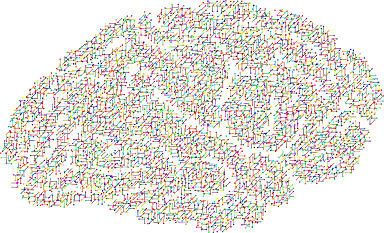
Epileptic seizures that last for an extended period of time are among the most common neurological emergencies in children observed in hospitals. These seizures have the potential to be fatal, however the faster doctors can reduce the effects of the seizure, the less chance there is of long-term complications.
A recent study, published in the medical journal The Lancet, will change how physicians manage this condition. The research was conducted by a team of scientists out of the Faculty of Medical and Health Sciences at the University of Auckland and Starship Children’s Hospital. The team was led by Professor Stuart Dalziel and the study’s senior author was Professor Franz Babl from Melbourne’s Murdoch Children’s Research Institute.
The first line of treatment for severe seizures is generally benzodiazepines and this only halts seizures in 40 to 60 percent of patients. Prior to this study, the next treatment step was the anti-convulsion medication, phenytoin. However, this practice had never been examined in a major randomised controlled trial. Along with this, the drug phenytoin was known to possess some serious complications.
This study was funded by the Health Research Council of New Zealand. It involved the team of researchers comparing phenytoin with a newer anti-convulsion medication known as levetiracetam during the second line of treatment of seizures. Levetiracetam is used on a routine basis to prevent seizures; however it has not been properly tested against the phenytoin drug for treatment of prolonged seizures.
This research involved 233 child patients aged between 3 months and 16 years, the research was conducted by the PREDICT research network in 13 emergency departments at hospitals in New Zealand and Australia.
The team found that whilst the drug were similarly effective when administered individually (50-60 percent success rate), they were much more successful at stopping seizures when both drugs were used one after the other. (75% success rate)
In previous situations when phenytoin was administered and it did not work, the next step for doctors was to place the patients on a ventilator in intensive care. This new method of using both medications will possibly reduce the number of patients in intensive care from prolonged seizure by half.
Dr Dalziel, who was the research team lead on this project and a paediatric emergency medicine specialist at Auckland’s Starship Children’s Hospital said; "This study has now given us robust evidence to manage children with prolonged seizures without reverting to intubation and intensive care," He went on to say; "By controlling seizures in the emergency department we will increase the chance of these children recovering more quickly and returning back to their normal lives,".
"This study is going to profoundly improve treatment for children who are critically ill with epilepsy around the world," says Professor Franz Babl, who is also Professor of Paediatric Emergency Medicine at the University of Melbourne.
